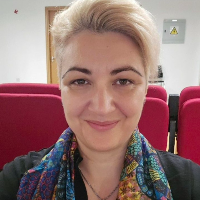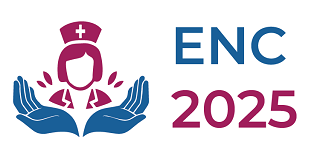ENC 2025

General Hospital of Agrinio, Cyprus
Abstract:
In the current environment, the potential risk of medical errors is potentially much more likely. Prior to COVID-19, medical errors were considered a global priority, which prompted the WHO to hold the first “World Patient Safety Day” on September 17, 2019. The goal is to make healthcare safer, raise global awareness of patient safety, and encourage people to demonstrate their commitment (“representing patient safety”). Several interrelated factors have been identified that affect the quality and timely delivery of care in emergencies. These include organizational systems, workloads, time constraints, teamwork, individual human factors, and case complexity . The remainder of this article provides an overview of specific individual human factors (HF) and working within hierarchies during an epidemic do.PRELIMINARY CLINICAL PREPARATION What can you do? Simulation Training is a well-established training tool used in the military, aerospace and civilian sectors. It facilitates kinesthetic learning, but it is also a very effective way to learn from mistakes and mistakes in a safe environment. There is evidence that the simulator is effective in improving clinical skills as well as non-technical skills. The courses, including HF training, are: NOTSS (Non-technical skill for surgeons). START (Acute Disease Recognition and Systematic Training in Surgical Treatment) Course. Training exercises in the military context reduce the risk of “invalidation”. Candidates for the 2015 LIVEX (Live Training in Exercise) pilot project have proved to be a good way to stay ready for operation . This is especially true in the military medical environment where HOSPEX (hospital movement simulation) is deployed . This can be reminiscent of certain threats such as the crisis of Ebola and many lessons at B. Op GRITROCK are related to COVID 19 .CONCLUSION The current situation has created challenges for the workforce in terms of adapting to new ways of working, relocating clinically, and managing our own health and the health of our loved ones. Many front-line colleagues are separated from their families for fears of spreading the virus. All official evaluations, such as the MRCS and FRCS exams, have been discontinued. There is also intense exposure to politics and politicians every day. For example, there is a certain degree of skepticism and distrust about resolving the situation, given previous responses to contracts with junior doctors. COVID19 is affecting all us, our extended families and all those we serve. We must continue to adapt to these new ways of working: within our levels of competency, to deliver safe patient care, and, to minimise the potential for error.
Biography:
Evangelia Michail Michailidou is an Anaesthesiologist-Intensivist at Apollonion Private Hospital of Lefkosia_Cyprus with 14 years experience in the field of anaesthesiology & 7 years in intensive care, exemplifies unwavering dedication, unparalleled expertise, and exceptional leadership skills. As a full-time professional in her field and a remarkable Life and Leadership Coach, Evangelia sets new standards in patient care through her visionary guidance. Her coaching inspires individuals to unlock their potential and embrace their leadership qualities. She has participated in many seminars, research-educational projects, and conferences as a speaker and as a trainer and trainee about issues in medicine. Also, she has many publications in medical journals. She was a member of the National Team in the Youth and Women categories in FIN Swimming, winning 11 international medals in international competitions during the six years 1997-2002
